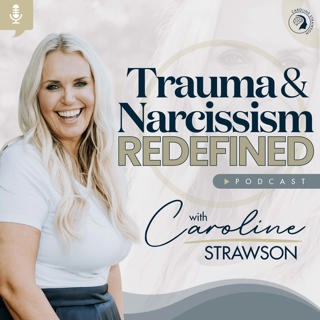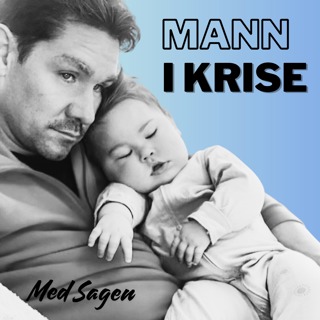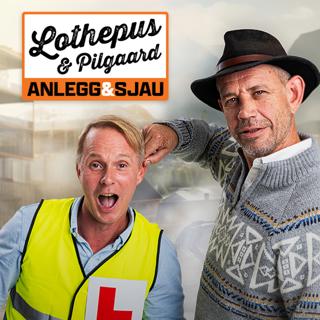
Narcissistic Trauma Versus Narcissistic Abuse
In this episode, we will talk about the difference between narcissistic abuse and narcissistic trauma. We will analyse and understand the origin of the trauma produced by narcissistic abuse, why narcissistic behaviour triggers memories of past events in our lives, and how we can reclaim our power. What You Will Learn In This Episode: - Why we choose to stay in abusive relationships - The differences between narcissistic abuse and narcissistic trauma - The role of our interpretation of past events during our childhood in how we feel today - How separating abuse from trauma can help us take our power back When we are abused by a narcissist, our response to abuse is related to our childhood wounds, and it is crucial that we work on healing them. Once we recover our younger self, even though we can't change a narcissist, we can change our interpretation of their behaviour. Resources: - Join my Facebook group at https://www.facebook.com/groups/thriveafternarcissisticabuse - Connect with me on Instagram: https://www.instagram.com/carolinestrawson/ - My website: https://www.carolinestrawson.com/
8 Jun 202120min

What The Narcissist Does At The End Of Every Relationship
In today's episode, we will discuss what happens when we end a relationship with a narcissist. We will analyse why the abuse continues after the end of the relationship, and why narcissists smear our reputation when we are the ones who decide to separate or divorce. I'll share some of my own experiences, and how I learned to stop judging myself and others in narcissistic abusive relationships. What You Will Learn In This Episode: - Why narcissists feel their wounded parts triggered when we decide to end the relationship - What makes a narcissist want to end a relationship - Why our narcissistic ex-spouse looks like a different person after we separate from them - Why narcissists tend to rewrite the story of what happened and then try to smear our reputation Instead of judging ourselves for staying in an abusive relationship, we can take this awakening as an opportunity to know ourselves better. We need to be curious about why we feel the way we do, and identify the younger wounded parts we were trying to protect by accepting being in a relationship with a narcissist. Resources: - Join my Facebook group at https://www.facebook.com/groups/thriveafternarcissisticabuse - Connect with me on Instagram: https://www.instagram.com/carolinestrawson/ - My website: https://www.carolinestrawson.com/
1 Jun 202127min

Can a Narcissist Change Their Spots?
This week we will answer a question that many people ask themselves after an abusive relationship - can a narcissist change their spots? We will dive deep into why those abused start doubting themselves, and understand why our narcissistic ex-partners seem happy and fulfilled in their new relationship. What You Will Learn In This Episode: - Why we start doubting ourselves after breaking up with the narcissist - How a narcissist's protective parts trigger a codependent's protective parts - The two things to consider when a narcissist enters a new relationship - What we can and what we cannot change about what happened to us in the past Healing from narcissistic trauma doesn't happen instantly. It's about realising that the narcissist highlighted our core wounds and protective parts. The best thing we can do is stop looking at the narcissist and their new relationship, focus that lens on ourselves, take back our power, and do what we need to do to live our best life. Resources: - Join my Facebook group at https://www.facebook.com/groups/thriveafternarcissisticabuse - Connect with me on Instagram: https://www.instagram.com/carolinestrawson/ - My website: https://www.carolinestrawson.com/
25 Mai 202117min

Rock Bottom to Post Traumatic Growth - A Story to Inspire Hope with Danette May
Today I'm joined by the extraordinary Danette May, America’s leading healthy lifestyle expert, #1 best-selling author of “The Rise,” and 7 health and fitness books and programs. She is a co-founder and CCO of Mindful Health, LLC (#48 on the Inc. 5000 List), dedicated founder of The Rise movement, world-renowned motivational speaker, wife, and mother. Danette's rise began after losing her son during childbirth, getting divorced, and finding herself with $47 to her name. It was then that she decided to stop being a victim and rewrite her story. She began to focus on the three pillars of healing: healing foods, healing movement, and a healing mindset. These three pillars form the foundation of every product or program she's created since then. In this episode, Danette charts how she was able to pull herself back from rock bottom to have POST TRAUMATIC GROWTH in all areas of her life. Danette would also offer anyone who pre-orders her book access to a Free Live Virtual Relationship Coaching Event (worth $597). As a VIP coach, she leads healing retreats, and helps high level execs change their mindset, learn to manifest, and call in intimate relationships, attracting their Soul’s Contract Connection. Pre-orders of the new book "Embrace Abundance" can get a FREE TICKET to a live event by going here: http://embraceabundancebook.com What You Will Learn In This Episode: - What it meant for Danette to fail to tune into her intuition - The importance of taking responsibility for our life choices - Why forgiveness is so liberating - The three pillars of healing, and why it’s essential to focus on each of them - The importance of the words that we say to ourselves When we forgive those who hurt us, we unplug them from our energetic field. Either if they say or do something to us, or if we remember what they did to us in the past, we won't be affected. Only after we unplug ourselves from the people who hurt us, we can rise up and be who we want to be, without being pulled down by past memories. Resources: - Visit Danette May's website: https://danettemay.com/ - Pre-order Danette’s new book “Embrace Abundance” http://embraceabundancebook.com - Join my Facebook group at https://www.facebook.com/groups/thriveafternarcissisticabuse - Connect with me on Instagram: https://www.instagram.com/carolinestrawson/
18 Mai 202137min

Interview With Ross Rosenberg, Founder of Self-Love Recovery Institute
Today I’m sharing with you a fantastic conversation with Ross Rosenberg. Ross Rosenberg M.Ed., LCPC, CADC, is the owner of Self-Love Recovery Institute. He is a psychotherapist, educator, expert witness and author. Ross is known globally for his expertise in codependency (Self-Love Deficit Disorder), Pathological Narcissism, Narcissistic Abuse and Trauma Treatment. He is a keynote speaker who has presented in 30 States/70 cities and abroad and has been regularly featured on national TV and radio. His “The Human Magnet Syndrome” books sold over 120K copies and are translated into 10 languages. His YouTube Channel has amassed 19 million video views and more than 200K subscribers. In this episode, Ross shared brilliant insights about responsibility, codependency, children moulded by narcissistic parents, and core shame. We talked about his definition of codependency, and how it was a game changer for so many people after finding an explanation that made sense for them. What You Will Learn In This Episode: - The victim's connection with responsibility and the band-aid therapy - Ross' journey of dealing with narcissists in his life, and how he managed to overcome his challenges - How many types of codependents there are according to Ross, and the difference between them - What is the human magnet syndrome - What is a relationship template, how it is created, and how it works Ross’s definition of codependency is revolutionary, because it offers a simple explanation of the condition. After we have an answer, we can make a choice to address the problem and neutralize its cause. Connect with Ross Rosenberg: - Self-Love Recovery Institute https://www.selfloverecovery.com/ - Find Ross on LinkedIn https://www.linkedin.com/in/rossarosenberg/ - Find Ross on Twitter https://twitter.com/rossrosenberg1/ - Find Ross on Instagram https://www.instagram.com/rossrosenberg_slri/ - Visit Ross’s YouTube channel https://www.youtube.com/user/clinicalcareconsult Resources: - Book: Ross Rosenberg - The Human Magnet Syndrome: The Codependent Narcissist Trap: Surviving Narcissistic Abuse https://www.amazon.com/Human-Magnet-Syndrome-Codependent-Narcissist-ebook/dp/B07D99945P/ - Book: Alice Miller - The Drama of the Gifted Child: The Search for the True Self https://www.amazon.com/Drama-Gifted-Child-Search-Third-ebook/dp/B06XCG9MKN/ - Join my Facebook group at https://www.facebook.com/groups/thriveafternarcissisticabuse - Connect with me on Instagram https://www.instagram.com/carolinestrawson/
11 Mai 20211h 5min

Why Do I Have To Be The One To Change In Response To The Narcissist?!
Today, we will talk about why we feel WE need to change after all the abuse received from the narcissist in our lives. To help us see this issue from a different lens, we use the Internal Family System perspective, and we will understand why we feel that way. What You Will Learn In This Episode: - What is the reason behind our protective parts making us feel angry or frustrated - The consequence of blending with our protective parts - The questions we need to ask ourselves when we start feeling angry and frustrated When we feel we need to change our behaviour around the narcissist, or change how we react to their abuse, a sense of injustice invades us. The truth is we don't need to change; we only need to ask ourselves and understand why our protective parts are coming to rescue us. Ideally, we should see a narcissist as a spotlight warning us against being triggered and confusing our protective parts with our true self. Resources: - Join my Facebook group at https://www.facebook.com/groups/thriveafternarcissisticabuse - Connect with me on Instagram: https://www.instagram.com/carolinestrawson/
4 Mai 202115min

Am I Turning Into A Narcissist? - Mirror Neurons Explained
In this episode, we will dive deeper into a question that I get asked a lot - am I turning into a narcissist? We will talk about why we start to notice some narcissistic behaviours in ourselves after going through an abusive relationship with a narcissist. What You Will Learn In This Episode: - Why those victimised by a narcissist start exhibiting narcissistic behaviour - What the mirror neurons are, and their role in our behaviour - Why narcissists won't start mirroring codependency - How looking from a trauma-informed lens can help us understand our own narcissistic traits No narcissist will ever question their narcissistic behaviour, they will blame others for their actions. The best thing we can do when we detect narcissistic behaviour in ourselves is to step back, and look at it from a place of curiosity, compassion, courage, and clarity. If we are genuinely asking ourselves - am I a narcissist? - we most certainly are not. Resources: - Join my Facebook group at https://www.facebook.com/groups/thriveafternarcissisticabuse - Connect with me on Instagram: https://www.instagram.com/carolinestrawson/
27 Apr 202119min

Empathy & The Narcissist - Or Lack Of!!!
In today's episode, we will talk about narcissists and empathy. We will go through the three types of empathy and explain which area of the brain is responsible for each of them, so we can understand better why, according to the DSM, narcissists lack empathy. What You Will Learn In This Episode: - The three types of empathy - cognitive, emotional, and compassionate - The three main areas of the brain that are associated with each type of empathy - What kind of empathy narcissists are able to demonstrate - Why and when narcissists are showing some kind of empathy - What happens to us when we are offered no empathy When we understand the origin and the difference between the three types of empathy, it becomes easier to understand why sometimes it may look like the narcissist in our lives is showing kindness or compassion. For them, it is all about getting narcissistic supply, and they'll put themselves in a situation where they can get more of it. Resources: - Join my Facebook group at https://www.facebook.com/groups/thriveafternarcissisticabuse - Connect with me on Instagram: https://www.instagram.com/carolinestrawson/
20 Apr 202113min






















